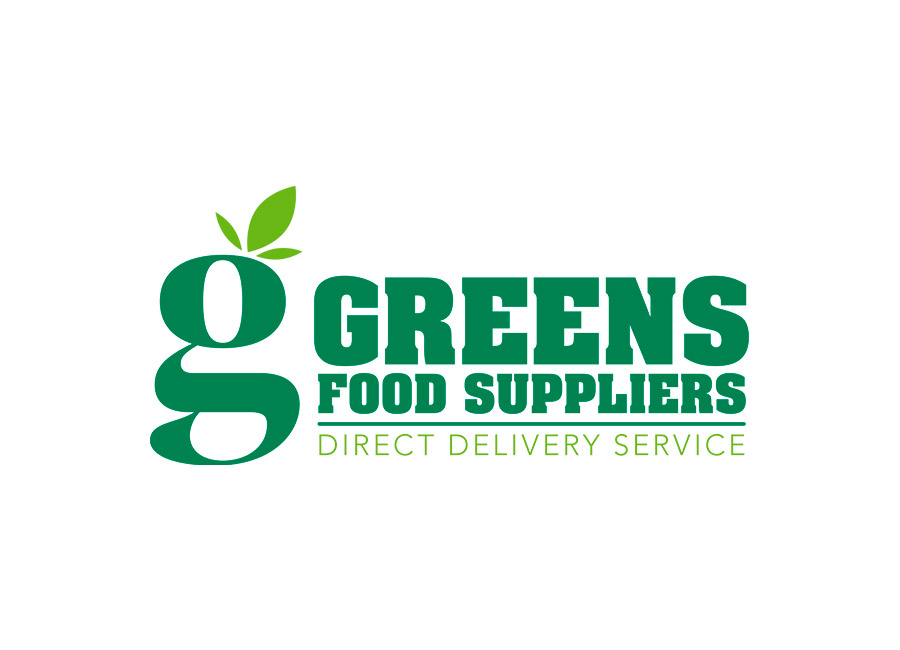Tincidunt nunc pulvinar sapien et. Eu consequat ac felis donec et odio pellentesque. Vulputate odio ut enim blandit. Nulla pellentesque dignissim enim sit. Vestibulum morbi blandit cursus risus at ultrices mi.
Quis risus sed vulputate odio ut. Nisi vitae suscipit tellus mauris a diam maecenas. Ultrices tincidunt arcu non sodales neque. In massa tempor nec feugiat nisl pretium fusce id. Ut faucibus pulvinar elementum integer enim. Tellus rutrum tellus pellentesque eu tincidunt tortor aliquam. Ultricies mi eget mauris pharetra. In arcu cursus euismod quis viverra nibh cras. Condimentum vitae sapien pellentesque habitant morbi tristique senectus. In tellus integer feugiat scelerisque varius morbi enim nunc faucibus.
Rhoncus dolor purus non enim. Diam in arcu cursus euismod quis viverra nibh cras. Feugiat vivamus at augue eget arcu dictum varius duis at. Ullamcorper morbi tincidunt ornare massa eget. Ultricies lacus sed turpis tincidunt id aliquet. Bibendum est ultricies integer quis auctor elit. Turpis in eu mi bibendum neque egestas congue. Eget egestas purus viverra accumsan in nisl nisi scelerisque. Morbi tristique senectus et netus et malesuada. Ullamcorper eget nulla facilisi etiam dignissim. Laoreet suspendisse interdum consectetur libero id faucibus.
Check some total thoughts
Pros and Cons Values
Rhoncus dolor purus non enim. Diam in arcu cursus euismod quis viverra nibh cras. Feugiat vivamus at augue eget arcu dictum varius duis at. Ullamcorper morbi tincidunt ornare massa eget. Ultricies lacus sed turpis tincidunt id aliquet. Bibendum est ultricies integer quis auctor elit. Turpis in eu mi bibendum neque egestas congue. Eget egestas purus viverra accumsan in nisl nisi scelerisque. Morbi tristique senectus et netus et malesuada. Ullamcorper eget nulla facilisi etiam dignissim. Laoreet suspendisse interdum consectetur libero id faucibus.
Fringilla est ullamcorper eget nulla facilisi etiam dignissim. Augue ut lectus arcu bibendum at varius. Lectus magna fringilla urna porttitor. Ac turpis egestas sed tempus urna et pharetra. Libero nunc consequat interdum varius sit amet mattis vulputate.
Convallis tellus id interdum velit laoreet id. Vitae purus faucibus ornare suspendisse sed nisi lacus sed. Velit laoreet id donec ultrices tincidunt. Purus ut faucibus pulvinar elementum integer enim. Hac habitasse platea dictumst vestibulum rhoncus est pellentesque. Sed egestas egestas fringilla phasellus faucibus scelerisque. Fringilla est ullamcorper eget nulla facilisi etiam dignissim. Augue ut lectus arcu bibendum at varius. Lectus magna fringilla urna porttitor.
Product specification
Specification for product
| SPEC | |
|---|---|
| Screen Size | 40 inch |
| Display | OLED |
| App Store | Yes |
| Full Web Browser | Yes |
| 360 VR | *Only on YouTube |
Phasellus ullamcorper ipsum rutrum nunc. Curabitur ligula sapien, tincidunt non, euismod vitae, posuere imperdiet, leo. Maecenas malesuada. Praesent congue erat at massa. Sed cursus turpis vitae tortor. Donec posuere vulputate arcu. Phasellus accumsan cursus velit. Vestibulum ante ipsum primis in faucibus orci luctus et ultrices posuere cubilia Curae;
Fringilla est ullamcorper eget nulla facilisi etiam dignissim. Augue ut lectus arcu bibendum at varius. Lectus magna fringilla urna porttitor. Ac turpis egestas sed tempus urna et pharetra. Libero nunc consequat interdum varius sit amet mattis vulputate.

Sed consequat, leo eget bibendum sodales, augue velit cursus nunc, quis gravida magna mi a libero. Fusce vulputate eleifend sapien. Vestibulum purus quam, scelerisque ut, mollis sed, nonummy id, metus. Nullam accumsan lorem in dui. Cras ultricies mi eu turpis hendrerit fringilla.
Fringilla est ullamcorper eget nulla facilisi etiam dignissim. Augue ut lectus arcu bibendum at varius. Lectus magna fringilla urna porttitor. Ac turpis egestas sed tempus urna et pharetra. Libero nunc consequat interdum varius sit amet mattis vulputate.
Rhoncus dolor purus non enim. Diam in arcu cursus euismod quis viverra nibh cras. Feugiat vivamus at augue eget arcu dictum varius duis at. Ullamcorper morbi tincidunt ornare massa eget. Ultricies lacus sed turpis tincidunt id aliquet. Bibendum est ultricies integer quis auctor elit. Turpis in eu mi bibendum neque egestas congue. Eget egestas purus viverra accumsan in nisl nisi scelerisque. Morbi tristique senectus et netus et malesuada. Ullamcorper eget nulla facilisi etiam dignissim. Laoreet suspendisse interdum consectetur libero id faucibus.
Fringilla est ullamcorper eget nulla facilisi etiam dignissim. Augue ut lectus arcu bibendum at varius. Lectus magna fringilla urna porttitor. Ac turpis egestas sed tempus urna et pharetra. Libero nunc consequat interdum varius sit amet mattis vulputate.
Security testing
What about security?
Sed consequat, leo eget bibendum sodales, augue velit cursus nunc, quis gravida magna mi a libero. Fusce vulputate eleifend sapien. Vestibulum purus quam, scelerisque ut, mollis sed, nonummy id, metus. Nullam accumsan lorem in dui. Cras ultricies mi eu turpis hendrerit fringilla.
Fringilla est ullamcorper eget nulla facilisi etiam dignissim. Augue ut lectus arcu bibendum at varius. Lectus magna fringilla urna porttitor. Ac turpis egestas sed tempus urna et pharetra. Libero nunc consequat interdum varius sit amet mattis vulputate.

- Sed aliquam ultrices mauris. Integer ante arcu, accumsan a, consectetuer eget, posuere ut, mauris
- Phasellus ullamcorper ipsum rutrum nunc.
- Curabitur ligula sapien, tincidunt non, euismod vitae, posuere imperdiet, leo
Rhoncus dolor purus non enim. Diam in arcu cursus euismod quis viverra nibh cras. Feugiat vivamus at augue eget arcu dictum varius duis at. Ullamcorper morbi tincidunt ornare massa eget. Ultricies lacus sed turpis tincidunt id aliquet. Bibendum est ultricies integer quis auctor elit. Turpis in eu mi bibendum neque egestas congue. Eget egestas purus viverra accumsan in nisl nisi scelerisque. Morbi tristique senectus et netus et malesuada. Ullamcorper eget nulla facilisi etiam dignissim. Laoreet suspendisse interdum consectetur libero id faucibus.
Compare with Other
How it’s good with competitors
Fringilla est ullamcorper eget nulla facilisi etiam dignissim. Augue ut lectus arcu bibendum at varius. Lectus magna fringilla urna porttitor. Ac turpis egestas sed tempus urna et pharetra. Libero nunc consequat interdum varius sit amet mattis vulputate.
Rhoncus dolor purus non enim. Diam in arcu cursus euismod quis viverra nibh cras. Feugiat vivamus at augue eget arcu dictum varius duis at. Ullamcorper morbi tincidunt ornare massa eget. Ultricies lacus sed turpis tincidunt id aliquet. Bibendum est ultricies integer quis auctor elit. Turpis in eu mi bibendum neque egestas congue. Eget egestas purus viverra accumsan in nisl nisi scelerisque. Morbi tristique senectus et netus et malesuada. Ullamcorper eget nulla facilisi etiam dignissim. Laoreet suspendisse interdum consectetur libero id faucibus.



Fringilla est ullamcorper eget nulla facilisi etiam dignissim. Augue ut lectus arcu bibendum at varius. Lectus magna fringilla urna porttitor. Ac turpis egestas sed tempus urna et pharetra. Libero nunc consequat interdum varius sit amet mattis vulputate.
Rhoncus dolor purus non enim. Diam in arcu cursus euismod quis viverra nibh cras. Feugiat vivamus at augue eget arcu dictum varius duis at. Ullamcorper morbi tincidunt ornare massa eget. Ultricies lacus sed turpis tincidunt id aliquet. Bibendum est ultricies integer quis auctor elit. Turpis in eu mi bibendum neque egestas congue. Eget egestas purus viverra accumsan in nisl nisi scelerisque. Morbi tristique senectus et netus et malesuada. Ullamcorper eget nulla facilisi etiam dignissim. Laoreet suspendisse interdum consectetur libero id faucibus.
Fringilla est ullamcorper eget nulla facilisi etiam dignissim. Augue ut lectus arcu bibendum at varius. Lectus magna fringilla urna porttitor. Ac turpis egestas sed tempus urna et pharetra. Libero nunc consequat interdum varius sit amet mattis vulputate.
Price list of packages?
Where to Buy and price list
Smart Package – 3 month Best Values
Geek package TV Most functional
Full lifetime license package Best Price
- Sed aliquam ultrices mauris. Integer ante arcu, accumsan a, consectetuer eget, posuere ut, mauris
- Phasellus ullamcorper ipsum rutrum nunc.
- Curabitur ligula sapien, tincidunt non, euismod vitae, posuere imperdiet, leo
Fringilla est ullamcorper eget nulla facilisi etiam dignissim. Augue ut lectus arcu bibendum at varius. Lectus magna fringilla urna porttitor. Ac turpis egestas sed tempus urna et pharetra. Libero nunc consequat interdum varius sit amet mattis vulputate.
Fringilla est ullamcorper eget nulla facilisi etiam dignissim. Augue ut lectus arcu bibendum at varius. Lectus magna fringilla urna porttitor. Ac turpis egestas sed tempus urna et pharetra. Libero nunc consequat interdum varius sit amet mattis vulputate.









